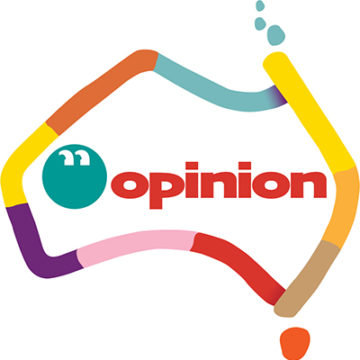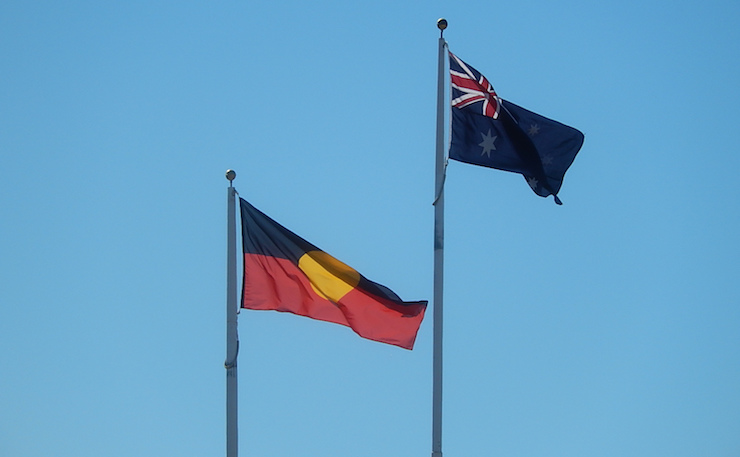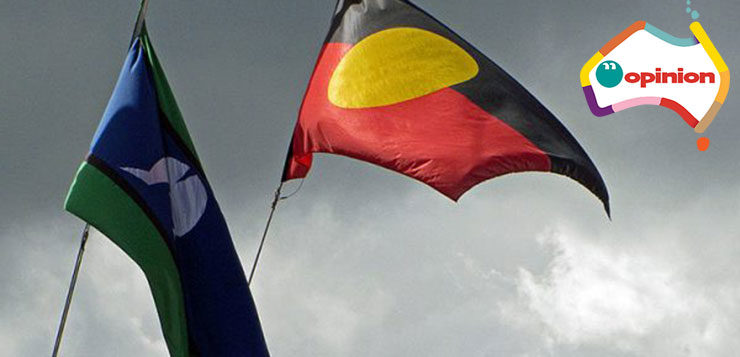 The Voice to Parliament is not about race, it’s about equity. It’s not racially divisive, but it is divisive, and justifiably so. And although the referendum singles out Indigenous Australians, it is not predicated on race — a lawyerly point to be examined further, writes DJ Wexler.
The Voice to Parliament is not about race, it’s about equity. It’s not racially divisive, but it is divisive, and justifiably so. And although the referendum singles out Indigenous Australians, it is not predicated on race — a lawyerly point to be examined further, writes DJ Wexler.
Division is not inherently a bad thing. We divide schools into different year levels. Sports clubs are assorted into separate men’s and women’s streams and are further splintered into leagues of skill and ability. By extension, are women’s domestic abuse hotlines sexist? Is the disability support pension ableist? No. They are government programs addressing the unique challenges faced by vulnerable members of society. Unique problems are treated uniquely. The division the Voice makes is analogical but in a significantly, assiduously constructed, and expanded fashion.
It begs the question, what do we mean by ‘Indigenous Australian’ if it is not based on ‘race’? And how can we justify their unique treatment?
Firstly, we need reminding that the Voice has been worked on and picked over by constitutional lawyers, politicians, and Indigenous representatives from across the country since 2015. And more recently, the Joint Select Committee on Aboriginal and Torres Strait Islander Voice Referendum addressed questions opponents of the Voice frequently and disingenuously exploit to sow seeds of uncertainty in an impressionable public.
During the committee hearing, Professor Anne Twomey points out a lawyerly, but clear, distinction. The referendum does not refer to Aboriginal and Indigenous Australians by race, it refers to them by reference to their being Australia’s first peoples, which is made clear at the start of the referendum question: “A Proposed Law… to recognise the First Peoples of Australia…”, and in the proposed law itself: “In recognition of Aboriginal and Torres Strait Islander peoples as the First Peoples of Australia”.
Anne Twomey continued: “The provision is there simply because of the status of Aboriginal and Torres Strait Islander peoples as Australia’s first peoples with the consequences… [being their]important role in Australia’s cultural history and of course their pre-existing legal rights as we saw with Native Title.”
Professor George Williams went further, advocating for the removal of race powers in the Constitution (Section 51) because it is an anachronism and misnomer, a “19th-century concept which has no longer any scientific credibility attached to it”. Already antagonistic towards the mention of race in the Constitution, it would be absurd to suggest Professor Williams would be promoting the introduction of more race-based provisions. To him, Indigenous Australians are identified by way of their prior and continuing connection to the land, not by some breed of phrenology or blood quantum. He argues instead that the referendum is to be understood in the context of history and culture.
Dovetailing Professor Williams, former High Court Justice Kenneth Hayne made clear that framing the referendum on the grounds of race is a failure to engage in the referendum itself. “This [referendum]is responding to history and entrenched disadvantage,” he argued. The provision proposed is supposed to acknowledge the history of Australia and recognise the manifold disadvantages inflicted and entrenched throughout Australian history.
Justice Hayne went on to repudiate the kind of equality members of the no-campaign espouse: “Equality of treatment, has never been how equality is achieved.” The law treats different cases differently, and it treats like cases alike.
Explaining the wording, Indigenous Australia is an historical category and includes an acknowledgment that governments and legislation since Federation have failed to right wrongs, often making them worse. Systemic neglect of Indigenous communities is reflected in the statistics that highlight their status as a uniquely disadvantaged group in Australian society.
According to the 2021 Census, between three to four per cent of the population identify as Aboriginal or Torres Strait Islander. The conditions endured by this minority, as the data shows, are frightening and incompatible with the ideas of ‘a fair go’ and liberal democracy. Yet according to Country Liberal Party politician Jacinta Price, reaching for true equality means not reaching out at all. In 2021 she said: “If we’re reaching for equality, true equality, then that means that Indigenous Australians be on the same footing as all other Australians.”
Price is pushing an open door when she says all Australians should be on the same footing. But she assumes the Voice will be a program to give Indigenous Australians a leg-over, rather than what it really is — a leg up. A ramp for people in wheelchairs is a leg-up, not a leg-over. Support groups for military veterans subsidised by the government is a leg-up, not a leg-over.

Aboriginal and Torres Strait Islander people are being granted special legal consideration as a means to reach an equal end. It is not about equal treatment, it is about an equal result. No sensible Australian would say Indigenous Australians are collectively better off than non-Indigenous Australians: the facts are undeniable, and to close the growing gap extraordinary measures must be taken. Every attempt to solve the problems endemic to these communities has been either cynical party promises or as maladroit as it was well-intentioned.
There are no paroxysms when, what would be considered racist by the logic of the ‘No’ campaign, policies and legislation are put in place like Native Title, Closing the Gap, Abstudy, the National Indigenous Australians Agency, and Aboriginal and Torres Strait Islander Commission (abolished). There is even a minister for Indigenous affairs!
So the principle of treating Indigenous Australians differently on ‘account of their race’ is not a recent phenomenon. But giving them a constitutional Voice — which is not a third chamber of parliament, with scholars confident it will not tie up courts — and which cannot be repealed at the nod of a new government, gives politicians an uneasy feeling.
Put simply, political detractors of the Voice fear losing their paternalistic grip on Indigenous communities when Indigenous Australians just want to be free to engineer solutions communally, where interference from Canberra has failed them.
Peter Dutton and Pauline Hanson have argued the Voice is divisive. These two politicians should not be giving lectures on what is and what is not divisive when one boycotted Rudd’s apology for the Stolen Generations and the other claimed Australia was “in danger of being swamped by Asians”. Just because somebody tells you something is racially divisive does not make it so. Inflammatory invocations of race are typically meritless and the Voice is no exception.
We are all Australians. This change affects us all — some more than others. Who are we to keep our heel on the necks of citizens in need? The Voice is fundamentally an emancipatory project which will dilute Canberra’s monopoly over Indigenous affairs. We should be optimistic, the Voice is the first in a series of steps to achieving national equality.
The Voice is an evolutionary framework designed to make room for bespoke propositions and solutions. At the very least, if our First Nations’ People are not listened to, they will be heard.
Donate To New Matilda
New Matilda is a small, independent media outlet. We survive through reader contributions, and never losing a lawsuit. If you got something from this article, giving something back helps us to continue speaking truth to power. Every little bit counts.




